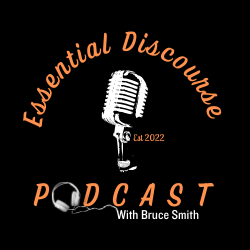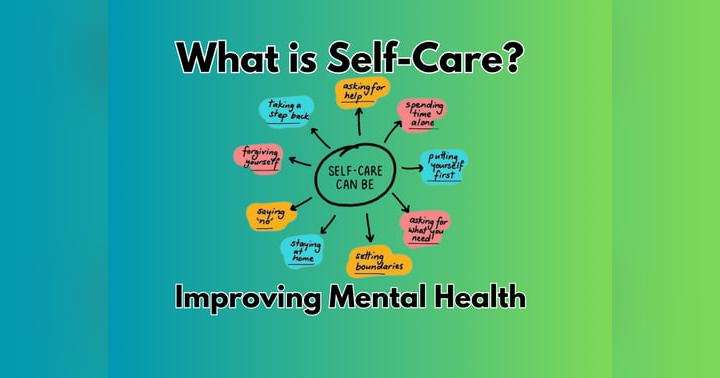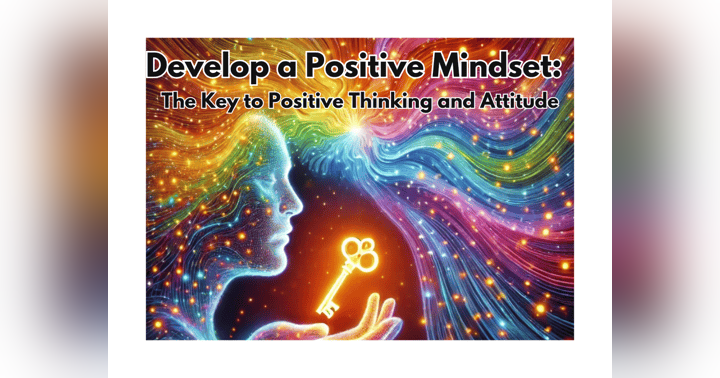Understanding Swine Mentality: Protect Your Pearls
Navigating Relationships: Pearls of Wisdom or Swine Concerns?

Valentine’s Day had just passed, and as I scrolled through my social media feeds, I was struck by the wave of messages about love, joy, and self-worth. This reminded me of a live stream I hosted recently—a space where genuine discussions about self-worth and the significance of our contributions took center stage. One important message kept surfacing: We must be mindful of where we invest our efforts. This got me thinking: Why do we often extend ourselves to those who don't appreciate our contributions?
The Significance of Self-Worth in Relationships
Have you ever felt drained after spending time with someone? Or perhaps you’ve invested a lot of effort into a relationship, only to feel it’s one-sided? These feelings often stem from our understanding of self-worth. When we truly grasp our own value, we can navigate relationships in a healthier way.
Understanding Self-Worth Leads to Healthier Relationships
Self-worth is not just a buzzword; it’s the foundation for all relationships. When we recognize our own values, we set the tone for how others treat us. Think about it: if you don’t value yourself, how can you expect others to?
-
Self-worth helps us establish boundaries.
-
It encourages us to seek out relationships that uplift us.
-
It allows us to walk away from toxic situations.
When we understand our self-worth, we’re less likely to settle for less than we deserve. We start to recognize our needs and desires, and this clarity can lead to more fulfilling connections.
Recognizing When Efforts Are Not Reciprocated
Have you ever felt like you were giving your all to someone who just wasn’t there for you? It’s a tough pill to swallow. Recognizing when efforts are not reciprocated is crucial. It’s easy to get caught up in the hope that things will change. But sometimes, we need to face the reality that not everyone will value us the way we deserve.
Consider this: if you’re always the one reaching out, always the one making plans, it might be time to reassess. Are you investing in a relationship that’s worth your time? Or are you pouring your energy into a bottomless pit?
Investing in Relationships That Reflect Our Values
We should surround ourselves with people who reflect our values and support our growth. This doesn’t mean we should only be friends with people who are exactly like us. Rather, we should seek out those who respect us and share similar goals.
-
Look for relationships that inspire you.
-
Seek out those who challenge you to be better.
-
Invest time in people who appreciate your efforts.
When we invest in relationships that align with our values, we create a support system that lifts us up. It’s a two-way street. Just like we want to be valued, we should also value others.
"Self-worth is the foundation for all relationships."
Therefore, understanding one's self-worth is crucial to forming lasting bonds. It allows us to recognize when we’re not being valued and encourages us to invest in relationships that truly matter. Let’s take a moment to reflect on who we surround ourselves with. Are they helping us grow, or are they holding us back?

Accountability: The Backbone of Healthy Relationships
Accountability is a big word, but it’s really about taking responsibility for our actions. In relationships, this means owning up to our mistakes and being honest with ourselves and others. When we understand personal responsibility, we create a foundation of trust. How can we expect others to trust us if we can’t even trust ourselves?
Understanding Personal Responsibility
In any relationship—be it with friends, family, or partners—personal responsibility is crucial. It’s about recognizing that our actions affect others. When we make a mistake, it’s easy to shift the blame. But what if we took a moment to reflect instead? What if we asked ourselves, “How did I contribute to this situation?”
-
Owning our mistakes helps us grow.
-
It shows others that we care about their feelings.
-
Being accountable builds mutual respect.
When we embrace accountability, we open the door to deeper connections. We learn from our experiences, and that’s how we foster growth. It’s like planting a seed; with care and attention, it blossoms into something beautiful.
Learning from Accountability
Learning from accountability is a powerful tool. Each time we acknowledge our role in a situation, we gain insight. This insight can lead to personal development. For example, if I made a mistake at work and admitted it, I could learn how to avoid it in the future. This not only helps me grow but also strengthens my relationships with colleagues.
Here’s a thought: have you ever noticed how accountability can foster community trust? When we see others owning up to their actions, it encourages us to do the same. It creates a ripple effect of honesty and integrity.
The Negative Impact of Avoiding Accountability
On the flip side, avoiding accountability can be damaging. It leads to resentment and misunderstandings. When we refuse to take responsibility, we create a toxic environment. Think about it: how does it feel when someone constantly blames others? It’s frustrating, right?
People with a “swine mentality”—those who refuse to acknowledge their faults—often create chaos. They expect support without putting in any effort themselves. This can drain our energy and leave us feeling unappreciated. We must recognize these patterns and set boundaries.
"Being accountable is key to building trust in any relationship."
Accountability is essential for healthy relationships. It lays the groundwork for robust connections among friends and family. By understanding personal responsibility, learning from our actions, and recognizing the negative impact of avoidance, we can create a more supportive and trusting environment. Let’s embrace accountability and watch our relationships thrive!
Conclusion: Value Your Pearls
As we wrap up this discussion, I want to emphasize the importance of valuing our personal contributions. Each of us has unique experiences and insights that can enrich our communities. But how often do we truly recognize our worth? It’s easy to overlook our own value, especially when we’re surrounded by negativity or unappreciative attitudes.
Self-Reflection is Key
Self-reflection is crucial. It allows us to assess where we place our value. Are we investing our time and energy in the right places? Are we giving our pearls to those who truly appreciate them? Remember the quote:
“Don’t waste your valuable contributions on those unwilling to grow.”
This is a powerful reminder that our efforts should be directed toward those who are ready to embrace change and growth.
Take a moment to consider your relationships. Are they mutually beneficial? Or do you constantly give without receiving anything in return? It’s essential to recognize when to step back and protect your energy. We all deserve to be in environments that uplift us.
Share Your Stories
I invite you to share your experiences. Have you ever felt like you were giving your pearls to swine? How did you handle it? Your stories can inspire others who might be struggling with similar situations. Together, we can create a community that values self-worth and mutual respect.
Understanding Our Efforts
Reflecting on the notion of “pearls before swine,” we must understand where to invest our efforts for mutual benefit. It’s not just about helping others; it’s about ensuring that our contributions are appreciated and that they lead to positive outcomes. When we engage with those who are willing to grow, we foster a culture of support and collaboration.
In conclusion, let’s commit to valuing our pearls. Let’s recognize our worth and the impact we can have on our lives and communities. By doing so, we uplift ourselves and those around us who are ready to embrace growth. Remember, it’s not about how much we give but rather the quality of our contributions and the relationships we build. Let’s choose wisely where we invest our time and energy.
TL;DR: Our contributions hold value, and we must be selective about where we direct our support, focusing on those who are willing to grow with us.





